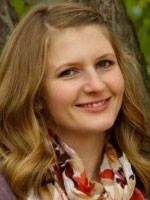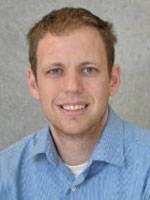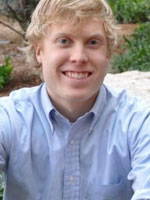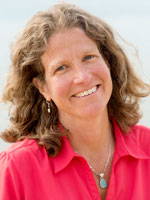A team of online entrepreneurs and a pioneering professor have been named the recipients of the Nelson Institute for Environmental Studies’ second annual alumni awards, established in 2014 to spotlight the accomplishments of the institute’s nearly 4,000 alumni.

Jami Morton, who earned her master’s degree in Environment and Resources in 2011, is the recipient of the Nelson Institute Early Career Alumni Award, which recognizes the accomplishments of alumni who are making a significant difference in the world soon after graduation.
As a graduate student, Morton teamed up with two classmates and colleagues at the Nelson Institute Center for Sustainability and the Global Environment (SAGE), Claus Moberg and Matt Luedke, to develop a smartphone application that would allow shoppers to check the carbon footprint of grocery items with the touch of a finger. Moberg and Luedke, who together with Morton were on the research team of UW-Madison environmental studies professor Tracey Holloway, will receive honorary alumni awards.
The team created their initial app concept as an entry in the 2010 Climate Leadership Challenge, a UW-Madison student innovation competition hosted by SAGE to generate cutting-edge sustainability solutions. After receiving a $15,000 prize in the competition, the trio founded the technology startup SnowShoe. Less than a year later, they launched the True Local iPhone app, a joint effort with local grocer Fresh Madison Market to help customers identify and buy foods made in Wisconsin.
The company, now operating out of Madison and San Francisco, California, has since evolved to focus on the SnowShoe Stamp – a small, customizable piece of plastic that can unlock unique digital content when touched to the screen of a smartphone or tablet, merging physical products with the digital world for everything from toys to games to business loyalty programs.

SnowShoe has received numerous honors of late, including a spot in the prestigious TechStars Boulder accelerator program in 2013 and the Disney Accelerator mentorship and investment program for technology startups in 2014.
“SnowShoe is a great example of innovation emerging from the interdisciplinary culture of the Nelson Institute, and how training in environmental problem solving is valuable for all sorts of problem solving,” Holloway wrote in her nomination of the company co-founders.
“Claus, Jami and Matt highlight a kind of environmental studies experience that is not widely appreciated – a launch pad for innovation, entrepreneurship, and solving big problems in a team-based, interdisciplinary approach,” she continued.
Neva Hassanein, who earned her doctorate in Land Resources (now Environment and Resources) in 1997, will receive the Nelson Institute Distinguished Alumni Award, which honors alumni who have demonstrated considerable professional achievement and/or community service since graduation at least ten years ago.

A professor of environmental studies at the University of Montana, Hassanein’s teaching and professional service have inspired students, colleagues and community members to understand and address critical environmental and social challenges.
Nominating Hassanein were Jack Kloppenburg, a UW-Madison professor of community and environmental sociology who chaired the alumna’s graduate committee, and Marcia Ostrom, an associate professor at the Washington State University School of Environment. They cite her tireless work to improve undergraduate and graduate education, her collaborative scholarly engagement and campus-community partnerships, and her contributions to the public dialogue surrounding food and environmental policy.
“Hassanein has become a national leader in sustainable food systems research and education, truly exemplifying the ideal of a public scholar,” the pair wrote in their nomination. “Her professional accomplishments and community contributions have been remarkable. … She has become a master at effectively involving students in meaningful research with far-reaching outcomes.”

Hassanein is the author of Changing the Way America Farms: Knowledge and Community in the Sustainable Agriculture Movement. At the University of Montana she has helped develop a nationally recognized Farm to College Program, which sources food products for university dining from local farmers, ranchers and processors, and an organic farm near campus that supports the university’s Program in Ecological Society and Agriculture. In 2005 she received the university’s Cox Award, which honors outstanding teaching by junior faculty early in their careers.